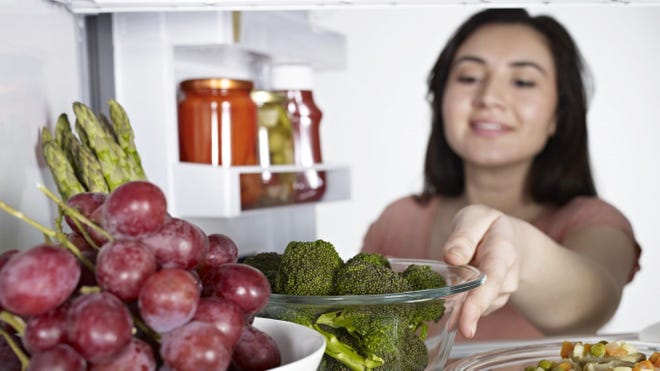The claim: Pineapple juice is five times more effective than cough syrup
When life gives you lemons, you make lemonade. But when life gives you pineapples, can you make cough syrup? A viral post on Facebook claims you can.
“Pineapple juice is 500% more effective at helping you stop coughing than cough syrup is,” a Facebook post reads. “Fresh pineapples contain a substance known as bromelain. A specific type of enzyme that has anti-inflammatory characteristics which can combat infections and eradicate bacteria.”
The post was made by the professional Facebook page for the rapper Big Boi, or Antwan Patton (who used to be one half of hip-hop duo OutKast). Neither Patton nor his team responded to USA TODAY’s request for comment.
Little scientific evidence pineapple juice reduces coughs
While the idea that pineapple juice has cough-reducing properties has long been circulated online, there’s not much research to back it up.
“Although pineapple juice has been touted in many home remedies that some have experienced with cough suppressants, there is no hard scientific evidence proven to suppress all coughs,” Thomas Vagts, a registered dietitian, told North Carolina’s WFMY News 2.
Most health websites that make this claim point to a 2010 scientific review, published in a small medical journal called Der Pharma Chemica, that discusses natural treatments for tuberculosis as evidence that pineapple reduces coughs.
The review cites “pineapple juice” – just once – as having been found to be “extremely helpful” in dissolving lung mucus in tuberculosis when mixed with pepper, honey and a dash of salt. The rest of the article focuses heavily on alternative treatments for tuberculosis – not on pineapples or their effect on coughs.
The journal itself has little credibility, as well. Resurchify, which measures the impact of scientific journals, found Der Pharma Chemica to have an impact factor of 0.32. For context, Nature, one of the world’s most highly regarded scientific journals, had a five-year impact factor of 45.819 in 2018, according to its website. Impact factor is a commonly used way to measure a journal’s importance, but is not definitive.
USA TODAY did not find any scientific evidence to explicitly back up the claim that pineapple juice works to suppress coughs, much less that it is five times more effective than cough syrup. Snopes came to the same conclusion in 2015.
Bromelain might offer other benefits
That’s not to say it couldn’t possibly offer a measure of relief. Bromelain, an extract found in the fruit and stem of pineapples, has a number of possible benefits.
Bromelain has anti-inflammatory properties, and though little research has been done on the extract, there has been some success in its effectiveness with dead skin removal, according to the National Center for Complementary and Integrative Health.
Multiple studies have looked at its effectiveness with sinusitus, but there’s not enough “high-quality research” to say whether bromelain should be recommended for it, according to the NCCIH.
While bromelain is often promoted as a dietary supplement for reducing pain and swelling, other studies looking at its effectiveness with both osteoarthritis and the after-effects of wisdom tooth surgery have found conflicting results, the NCCIH said.
One animal study, published in 2005, found that bromelain may be beneficial for people with asthma, but there has not been much follow-up regarding bromelain’s effectiveness there.
More generally, pineapples are also high in vitamin C, which has been proven to support the immune system.
Our rating: False
USA TODAY found no evidence to back up the claim that pineapple juice works five times better than cough syrup. Still, studied on its own, bromelain has anti-inflammatory properties and might help in other ways.
Our fact check sources:
- Der Pharma Chemica, “Use of Secondary Metabolite in Tuberculosis: A Review”
- WFMY News 2, “VERIFY: Pineapple Juice Can Suppress Some Coughs”
- Resurchify, “Der Pharma Chemica”
- Nature, “Journal Metrics”
- World Journal of Nuclear Medicine, “Journal Impact Factor: Its Use, Significance and Limitations”
- Snopes, “Is Pineapple Juice Five Times More Effective Than Cough Syrup?”
- NCCIH, “Bromelain”
- National Library of Medicine, “Bromelain exerts anti-inflammatory effects in an ovalbumin-induced murine model of allergic airway disease”
- WebMD, “Health Benefits of Pineapple”
Thank you for supporting our journalism. You can subscribe to our print edition, ad-free app or electronic newspaper replica here.
Our fact check work is supported in part by a grant from Facebook.



